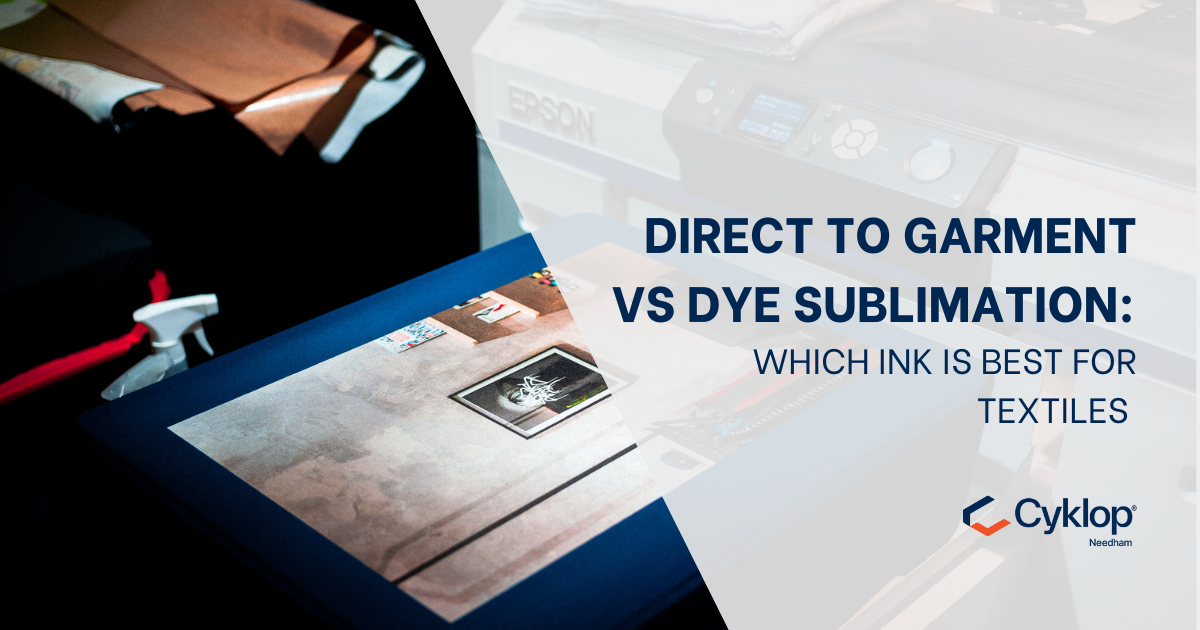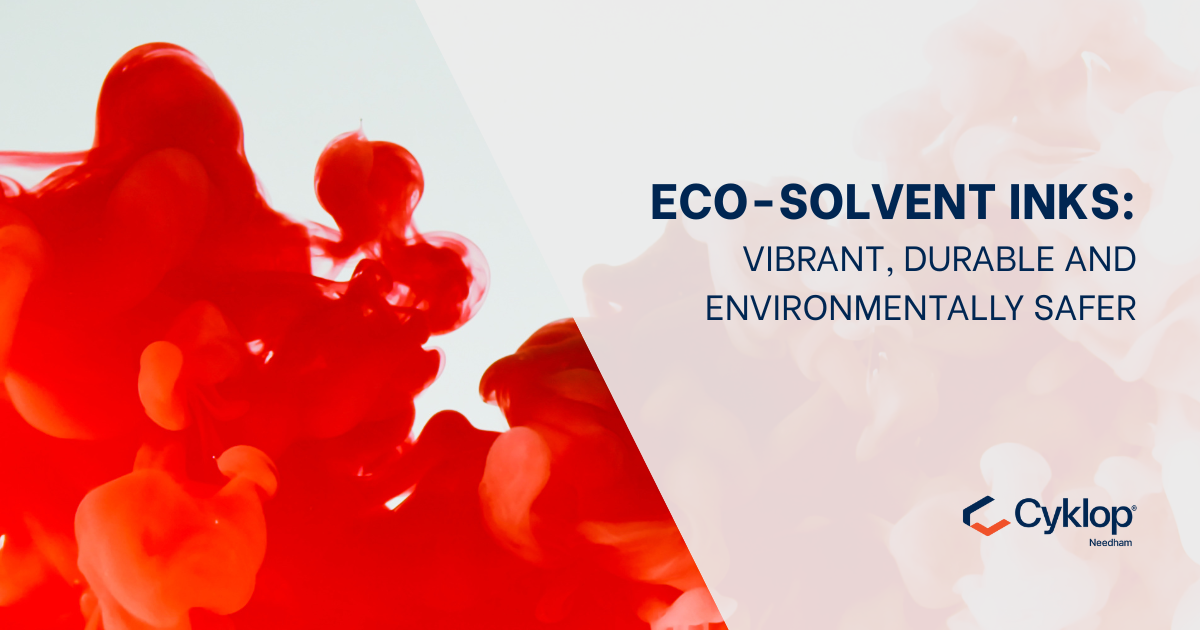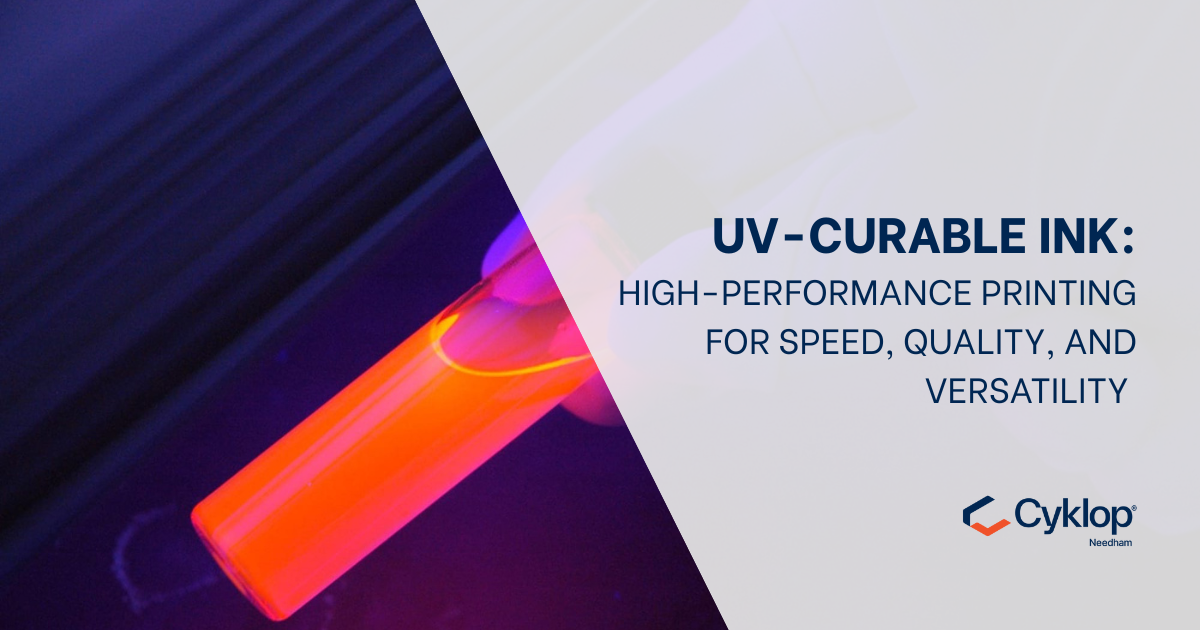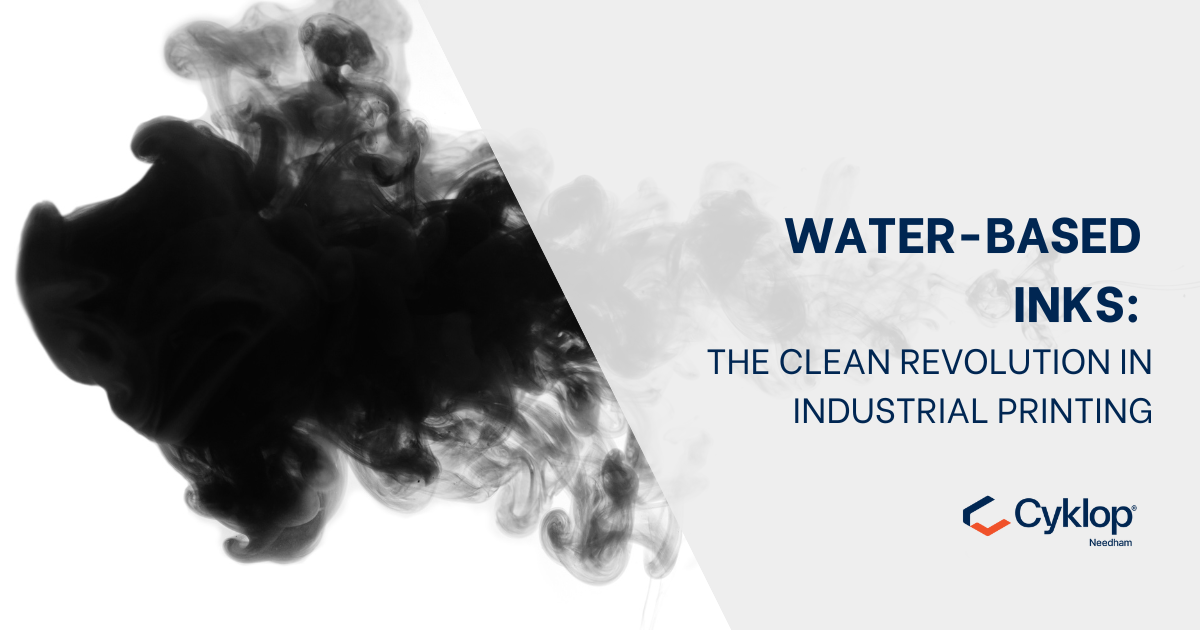Eco-Solvent Inks: Vibrant, Durable, and Environmentally Safer
Eco-solvent inks offer a powerful blend of vivid colour, durability, and lower environmental impact—making them the go-to choice for outdoor signage,...
2 min read
Samuel Mcgarrigle
Apr 1, 2022 3:18:21 PM

The demand for digitally printed textiles, fabrics, and garments continues to grow, especially in the garment, promotional, and interior design markets. Two of the most popular printing methods in this space are Direct to Garment (DTG) and Dye Sublimation (Dye-Sub)—each with its own strengths and ideal use cases.
In this blog, we’ll explore how both technologies work, their benefits, and how Cyklop Needham can help you develop the perfect OEM-compatible wide format ink for your business.
Direct to Garment printing allows inkjet printers to apply graphics or text directly onto fabrics, most commonly cotton-based materials like t-shirts. This method uses water-based, pigment-rich inks that are printed straight from the printhead onto the garment surface.
Once printed, the garment is heat-cured to make the ink permanent, washable, and lightfast—all while retaining the soft texture of the original textile.
DTG is especially effective for:
Cotton and cotton-blend t-shirts
Hoodies and sweatshirts
Tote bags and fabric accessories
For darker fabrics, a white under base layer is often printed first to ensure vivid, high-contrast colour results. Because DTG inks are pigment-based, they offer longer-lasting brightness compared to dye-based alternatives.
While also widely used for textiles, Dye Sublimation is a more versatile technique that enables printing on both fabrics and hard surfaces—such as mugs, bottles, and phone cases.
The dye-sub process uses special transfer paper and heat presses. Here’s how it works:
The image is printed onto transfer paper using dye-sublimation inks.
A heat press then transfers the ink onto the final surface.
The ink transforms from a solid to a gas (sublimates), bonding directly with polyester fibres or coated materials.
Dye-Sub is ideal for:
Polyester garments and sportswear
Promotional mugs and water bottles
Face masks and custom accessories
Soft signage and banners
Since the ink is infused into the material, rather than sitting on top of it, dye-sub produces long-lasting, vibrant prints with no peeling or fading.
Digital textile printing is booming in a range of markets, particularly where customisation, brand identity, and short-run production are important. Popular applications include:
Printed promotional garments (t-shirts, hoodies)
Tote bags and cotton accessories
Branded merchandise (mugs, face masks, bottles)
Interior fabric graphics and signage
According to the British Promotional Merchandise Association (BPMA), UK businesses spend an estimated £1.46 billion per year on promotional products—much of which involves wide format ink.
At Cyklop Needham, we’ve spent over 60 years developing OEM-compatible ink solutions for industrial and commercial printing markets. We specialise in wide format inkjet inks tailored for:
Direct to Garment printing
Dye Sublimation processes
Promotional product decoration
Custom signage and textile printing
Whether you're looking to save money with OEM alternatives or need a custom formula to meet specific substrate or colour requirements, our UK-based chemists can deliver inks that exceed expectations—without compromising on quality.
Speak to Our Ink Experts Today
📞 Call: +44 (0)1948 662629
📧 Email: info@needham-ink.com
🌐 Visit: www.needham-ink.com


Eco-solvent inks offer a powerful blend of vivid colour, durability, and lower environmental impact—making them the go-to choice for outdoor signage,...

What Are UV-Curable Inks? UV-curable inks are specially formulated inks that use ultraviolet light to cure—not heat. As soon as the ink is deposited...

As sustainability moves to the top of the agenda across industries, water-based digital inkjet inks are gaining traction — not just for their ...